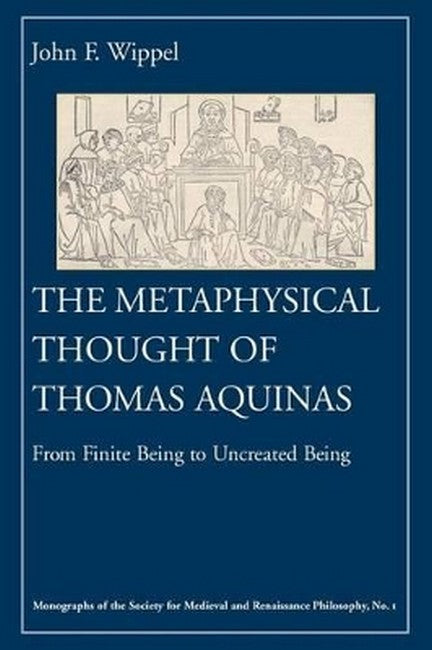John F. Wippel, professor of philosophy at The Catholic University of America, was recently awarded the prestigious Aquinas Medal by the American Catholic Philosophical Association. In addition to numerous articles and papers, Wippel has coauthored or edited several other works, including Metaphysical Themes in Thomas Aquinas and The Metaphysical Thought of Godfrey of Fontaines, both published by CUA Press.
Request Academic Copy
Please copy the ISBN for submitting review copy form
Description
The quality of Wippel's historical research and interpretation and the detail of his argumentation make this a work that will have to be taken account of in any further studies of this topic."- John Boler, International Studies in Philosophy"A carefully and solidly argued presentation of Aquinas's metaphysics by a scholar of medieval philosophy and a superb metaphysician. It should stand on the library shelf of every student of medieval philosophy, sharing the stage with Wippel's other dependable works."-Prof. Stephen F. Brown, Boston College "In Wippel we have a master of medieval metaphysics who is at the height of his powers and who can bring to bear on this work of interpretation years of study, not only of Aquinas but also of the whole context of medieval metaphysics in which Aquinas thought and wrote. The result is a monumental work which will quickly become the definitive work on Aquinas's metaphysics."-Prof. Eleonore Stump, St. Louis University "Wippel proposes to 'set forth Thomas Aquinas's metaphysical thought, based on his own texts, in accord with the philosophical order. . . .' This is a bold, even audacious proposal, but one that Wippel succeeds in realizing, thanks to his expansive and detailed knowledge of a field in which he has worked for more than twenty years. He has total command not only of the works of Thomas, of his sources, and of his earliest commentators, but also of the secondary literature of this century in English, Italian, French, German, and Spanish." -Gregorianum

